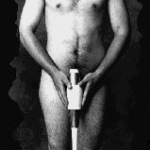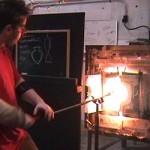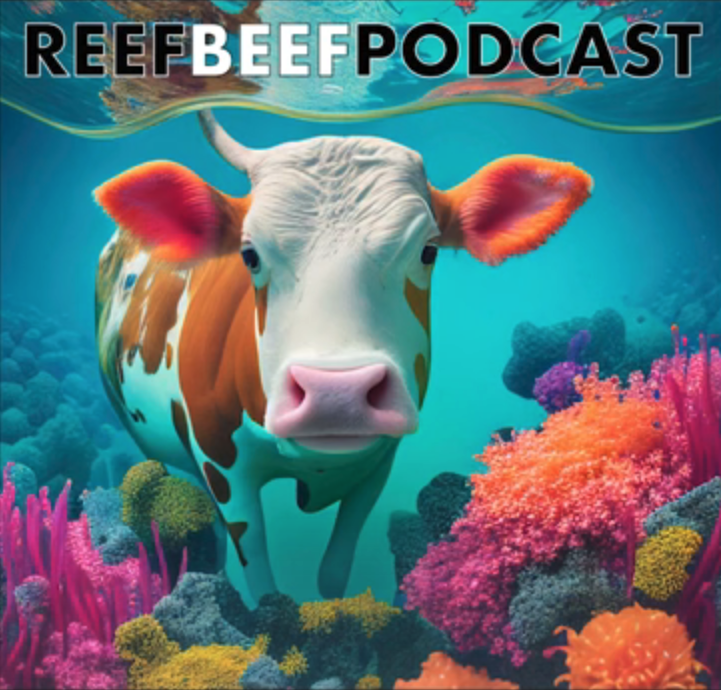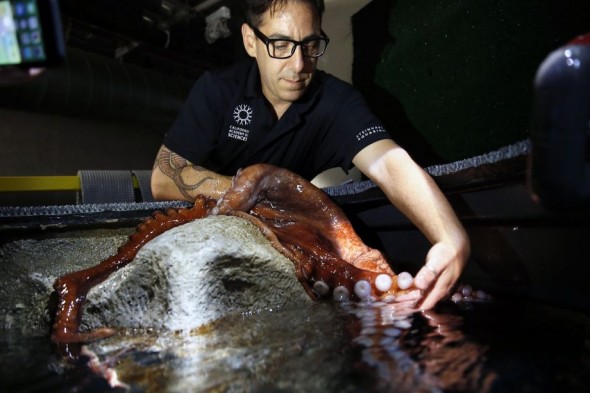 Richard Ross is known for the “Skeptical Reefkeepign” article series, groudbreaking work with cephalopod husbandry, entertaining and informative talks, managing the ambitious 212,000 gallon reef tank in the Steinhart Aquarium in the California Academy of Sciences, ‘getting stuff done’ in the field, and spawning Acropora in closed systems at the Albright Lab and ins his Secret Home Lab. Richard has kept saltwater animals for over 30 years, has worked in the aquarium industry and trade (maintenence, retail, wholesale, collections, etc), and has consulted for coral farms, collecting stations, academia, public aquaiums, and for private research projects. Richard was presented with the 2015 MASNA Aquarist of the Year award (now the MASNA Award), and his work has been covered by National Geographic, Scientific American, Animal Planet, Penn’s Sunday School, NPR’s Science Friday, Discovery News, Fox News, and more. Richard is also co host of the popular Reef Beef Podcast.
Richard Ross is known for the “Skeptical Reefkeepign” article series, groudbreaking work with cephalopod husbandry, entertaining and informative talks, managing the ambitious 212,000 gallon reef tank in the Steinhart Aquarium in the California Academy of Sciences, ‘getting stuff done’ in the field, and spawning Acropora in closed systems at the Albright Lab and ins his Secret Home Lab. Richard has kept saltwater animals for over 30 years, has worked in the aquarium industry and trade (maintenence, retail, wholesale, collections, etc), and has consulted for coral farms, collecting stations, academia, public aquaiums, and for private research projects. Richard was presented with the 2015 MASNA Aquarist of the Year award (now the MASNA Award), and his work has been covered by National Geographic, Scientific American, Animal Planet, Penn’s Sunday School, NPR’s Science Friday, Discovery News, Fox News, and more. Richard is also co host of the popular Reef Beef Podcast.
In addition to working in the animal world, Richard was a professsional juggler and corporate script writer. He is an avid photographer/videoographer, but on land and under water, and has been fortunate to dive many of the worlds reefs. At home he cares for a 150 gallon display reef, as well as 300 additional gallons in his Secret Home Lab cephalopod/fish/coral breeding systems, two hairless dogs, 2 semi hairless ‘cats’, a mexican beaded lizard, a rose haired turantula, carnivorous plants, three chickens, and his Bride and child. Richard has collected weird skills; glass blowing, hot shop fabrication, juggling, newspaper layout, graphic design, scuba diving, horseback riding, kiteboarding, photography, drone piloting, video editing, mixed martial arts, and more. In his spare time, he exercises his philosophy degree, and maximizes joy by spending time with his fabulous daughter, and his incredibly generous, intelligent, smokin’ hot wife.
Photos of Rich
Article about the other careers of Rich Ross
Official Work Bio
Richard has done a bunch of other stuff as well, including being a stay at home dad, glass blowing, juggling, corporate presenting, newspaper layout and design and philosophy. Links below the photos:
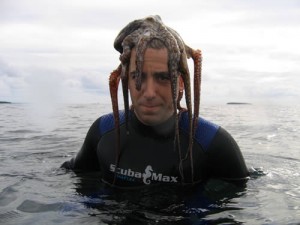
Why is there an octopus on Rich’s head?
While training divers on responsible and sustainable fish and coral collection in Tonga, we came across this octopus. As Tonga is mostly a substance culture, the divers we were training wanted to catch the octopus to help feed their families. One of them grabbed a claw hammer and proceeded to smash up several meters of coral while catching the octopus. One the boat I asked him ‘we just spent all day talking about how not to damage the reef, and there are easier ways to catch octopus, so why use a hammer?’. He answered ‘they bite’. ‘No they don’t’ I said, picking up the octopus and putting it on my head, where luckily it didn’t bite me, going on to discuss better ways to catch octopus. We then talked about how sustainable and responsible ideas applied to everything including fishing, and how respecting habitat means there will be creatures there for a long time to come. `
